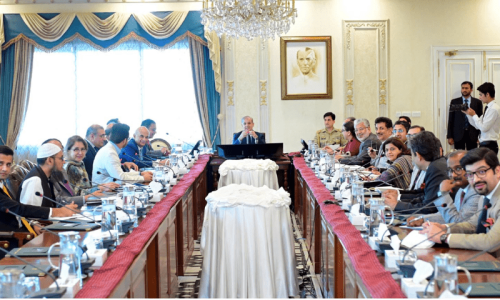DHAKA: A Bangladeshi court sentenced eight Islamists to death on Monday for a 2001 bomb attack that killed 10 people and wounded scores more during the country’s main celebrations for the Bengali New Year.
The head of the outlawed Harkat-ul-Jihad al Islami (HuJI) outfit, Mufti Abdul Hannan, was among the eight sentenced to hang for planning and carrying out the bombing in Dhaka’s main park.
It was one of the first deadly attacks by an extremist Islamist group in the country.
Metropolitan sessions judge Ruhul Amin also sentenced six others to life in prison for setting off two bombs under a tree while thousands of revellers celebrated the first day of the Bengali New Year in April 2001.
The attack was captured live on television, with the scenes of carnage triggering widespread outrage.
“The attack was carried out to destabilise the country and create panic,” Judge Amin said as he delivered the verdict before a packed courtroom in Dhaka’s old city. “The first day of the Bengali New Year is a universal celebration. This celebration is not tied to any religious or political group,” he added.
The Bengali New Year, celebrated on April 14, is the most important secular festival for the 155 million ethnic Bengalis in Bangladesh.
Hundreds of thousands traditionally gather and sing under a banyan tree in the capital’s historic Ramna Park and the nearby grounds of Dhaka University.
Prosecutors said HuJI militants plotted the attack when they gathered at a mosque in Dhaka several weeks earlier.
“It was a heinous attack and unprecedented in our history,” prosecutor Abdullah Abu told reporters after the verdict was announced.
“We’re happy with the eight death sentences, but not satisfied with the sentencing of six people who were given life terms. We’ll appeal against the life sentences.”
The HuJI chief, better known as Mufti Hannan, is already on death row after being convicted in 2008 of trying to assassinate the British high commissioner four years earlier in a grenade attack.
Bangladesh saw mass protests last year when several senior Islamists were sentenced to death after being convicted of war crimes dating back to the 1971 conflict.
On Tuesday the country’s war crime court is set to deliver its latest verdict against the leader of the largest Islamist group Motiur Rahman Nizami for alleged atrocities during the 1971 war.
Published in Dawn, June 24th, 2014













































